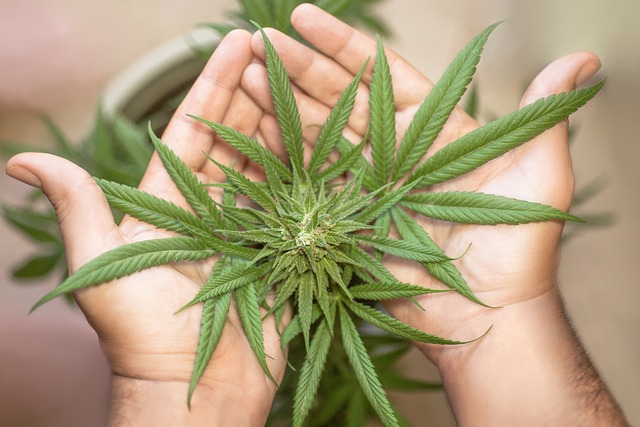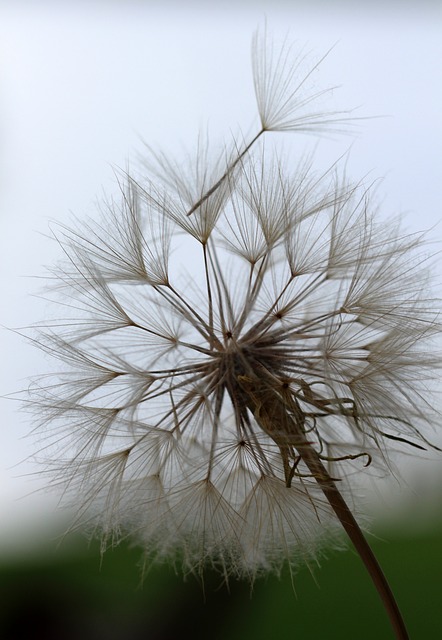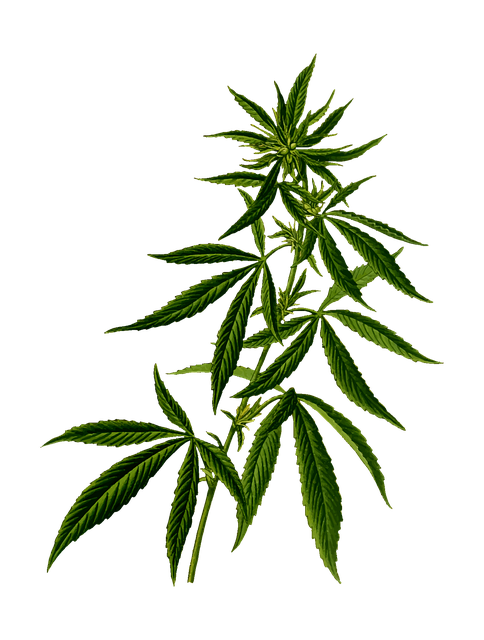In Florida, the legality of THCA (Tetrahydrocannabinolic Acid) flower is a nuanced issue influenced by both federal and state laws. While hemp-derived products with less than 0.3% THC are federally legalized under the 2018 Farm Bill, Florida's own legislation allows for higher THC levels up to 0.8%. This creates a complex legal environment for THCA, which is non-psychoactive but can convert to THC when heated, as it sits in a gray area that is federally illegal but state-sanctioned for medical use. Despite this, THCA flower is gaining attention for its potential therapeutic benefits, including pain relief and anti-inflammatory properties, within the state's framework that supports medical marijuana. It's important for consumers to purchase THCA flower from licensed dispensaries in Florida to ensure they are complying with regulations and using a product that meets safety standards. As always, individuals should consult healthcare professionals before incorporating THCA into their health regimen due to potential side effects and interactions with other medications. The state's approach to THCA offers a controlled environment for researching and understanding its efficacy and safety in medical applications.
Exploring the nuances of THCA flower’s legal standing and potential side effects in Florida, this article sheds light on a topic of growing interest. As states across the nation evolve their cannabis policies, understanding the implications of THCA’s legal status within Florida’s framework becomes increasingly pertinent. We delve into the health and well-being impacts associated with its use, providing readers with a comprehensive overview of this emerging substance. Join us as we navigate the intersection of legality, health, and the evolving narrative surrounding THCA flower in the Sunshine State.
- Exploring the Legal Status and Side Effects of THCA Flower in Florida
- Understanding THCA Flower's Impact on Health and Well-being in a Legal Context
Exploring the Legal Status and Side Effects of THCA Flower in Florida

THCA, or Tetrahydrocannabinolic Acid, is a non-psychoactive cannabinoid found in the Cannabis sativa plant that is known to convert into THC, its psychoactive form, when exposed to heat or light. As of the latest updates, the legal status of THCA flower in Florida is nuanced and subject to ongoing legislative interpretation. Under the 2018 Farm Bill, hemp-derived products containing less than 0.3% THC are federally legal; however, state laws can provide further guidance. In Florida, the passage of the 2019 Farming Act, which legalized hemp and derivatives with no more than 0.8% THC, has led to a gray area regarding products like THCA flower. While full-spectrum hemp products are permissible under state law, confusion often arises due to the close similarity in terminology and composition between hemp-derived and cannabis-derived products.
Regarding side effects, consumers must approach THCA flower with caution. Although THCA itself is non-psychoactive, it may possess certain therapeutic properties. However, users may experience adverse reactions due to the presence of other cannabinoids or impurities. Side effects can include dizziness, dry mouth, and altered mood, which may be more pronounced in products that are not properly refined or labeled. It is crucial for consumers to procure THCA flower from reputable sources that provide accurate information on product content and cannabinoid levels. Additionally, as with any substance, individual sensitivity can lead to varied responses; therefore, it is advisable for users to start with small doses and be aware of the potential effects before consuming THCA flower. As the legal landscape continues to evolve, so too does the understanding of THCA’s implications, necessitating ongoing research and clear regulatory frameworks to ensure consumer safety and compliance.
Understanding THCA Flower's Impact on Health and Well-being in a Legal Context

THCA, or Tetrahydrocannabinolic Acid, is a non-psychoactive cannabinoid found in the Cannabis sativa plant that retains psychoactive properties once heated. As interest in cannabinoids grows, understanding their impact on health and well-being becomes increasingly important, especially within a legal framework. In Florida, where medical marijuana has been legally sanctioned, THCA flower is gaining attention for its therapeutic potential. Consumers are exploring its benefits, which may include pain relief, anti-inflammatory properties, and possible neuroprotective effects. The legal status of THCA in Florida enables researchers to investigate its efficacy and safety profile, providing a foundation for informed use within the medical community. Users should adhere to state regulations, ensuring they obtain THCA flower from licensed dispensaries to guarantee product quality and legality. As with any health-related decision, it’s advisable to consult with healthcare professionals to assess individual needs and potential interactions with other medications. The legal context in Florida allows for a structured environment where the benefits and side effects of THCA flower can be studied and understood, contributing valuable insights into its role in healthcare and wellness.
THCA flower, a non-psychoactive cannabinoid found in hemp and cannabis plants, has garnered attention for its potential health benefits and legal status in Florida. This article has delved into the nuances of THCA’s influence on well-being and the evolving legal landscape surrounding its use. While THCA flower is legal in Florida under certain conditions, it is imperative for consumers to be aware of its side effects, which can range from mild to severe, depending on dosage and individual physiology. Users should approach THCA with caution, considering its impact on both mental and physical health. As the legal landscape continues to shift, it remains crucial for individuals to stay informed about the regulatory environment and the scientific understanding of THCA’s effects. With responsible use and ongoing research, THCA flower has the potential to offer beneficial properties within the framework of Florida law.
